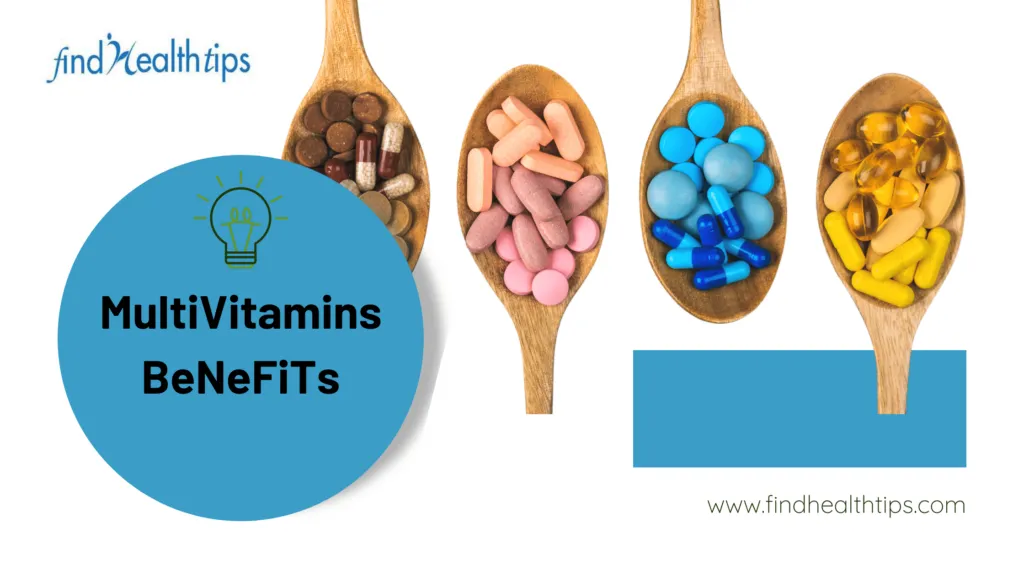Our health should always be a priority and is an essential factor when it comes to living a long and happy life. There are ways that we can help our bodies and minds to thrive, from exercising regularly to eating a balanced diet.
Multivitamins can be added to our daily routine to make sure we’re getting all the vital nutrients we need to function and adding them into your diet means you can reap the health benefits that come along with them.
Try the best multivitamins along with a healthy lifestyle to feel more energised and strengthen your immune system.
Read on to find out more about the benefits of multivitamins:
What are multivitamins?
Multivitamins are most common in the form of capsules or tablets but can also come as gummies and drops. They contain a combination of various vitamins and minerals that can help support our bodies day-to-day and can give us an overall health boost. They are easy to take and mean we can get all the vitamins and minerals our bodies benefit from with ease, that may not be present in our diet. It can be time-consuming to find the right vitamin to suit your personal needs, so taking multivitamins ensures you get a little bit of all the good stuff!
Who can benefit from multivitamins?
If you have a well-balanced diet, the likelihood is your food will be providing you with all the vitamins you need to function healthily and happily, but in some cases, we may need the help of these additional supplements. For example, there are gummies developed specifically for children, to ensure they’re getting what they need to grow. There are also capsules that can be great for pregnant women, or men that are ageing. There is a multivitamin to suit everyone, so taking the time to research could be beneficial. Below, we’ll look at some of the ways taking multivitamins can be advantageous.
Prevents deficiencies
Taking a capsule packed with a variety of vitamins and minerals can help to prevent any deficiencies in the body. If you suspect you have a specific deficiency, like low iron, you can choose a multivitamin that is developed for people suffering from low iron levels in the blood. Nutrient deficiencies can cause various issues in our body from tiredness to aching muscles, to weak nails and hair. Taking a multivitamin means you can ensure you’re not lacking in any key nutrient.
Increased energy levels
It is said that taking multivitamins can have a positive impact on your energy levels. Certain nutrients included in these capsules or tablets can provide a brain and body boost, especially if they include B Vitamins such as B12, Thiamine and folic acid. B vitamins are great for preventing conditions such as heart disease and migraines and can promote better brain function. So, if you have trouble concentrating, or you’re feeling tired more often, trying a multivitamin could be beneficial to you.
Boosts immune system
Over the last couple of years, many of us have realised how important it is to keep our immune system in good working order, to fight off any nasty infections or illnesses. Taking a multivitamin can help with this. If you find that you’re becoming under the weather more often, it might be that your immune system needs a boost. Finding a multivitamin packed with Vitamin C, D and E, can have a positive impact on your body’s ability to fight disease. A lot of these vitamins are found in foods, so if you have a balanced diet, they may not be necessary.
Do they have side effects?
There can be some side effects that come with taking multivitamins, although they do tend to subside when your body has adjusted to the vitamins you’re taking, which can range from constipation and nausea – these should not persist and are usually temporary if you make sure you’re sticking to the correct dosage.
Sometimes people don’t realise it but taking too many vitamins can also cause a problem. If you take certain vitamins that are already present in your diet, you may end up putting yourself in a worse position than you were before you began taking the supplements. If you eat a healthy diet and haven’t noticed any signs of deficiencies, you may not need to take multivitamins, or at least discuss them with your doctor or pharmacist first.

